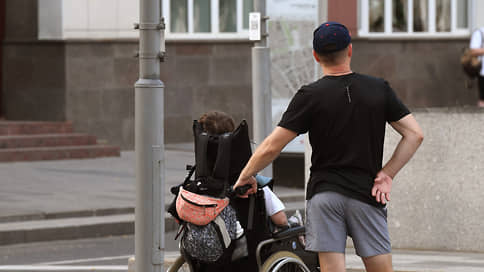Circle of Kindness opposes consistent experimental treatment for SMA
[ad_1]

The State Foundation “Circle of Kindness” announced the refusal to pay for the consecutive treatment of patients with spinal muscular atrophy (SMA) with various drugs. Tandem therapy is considered an experimental fund, so paying for it would be contrary to the functions of a fund funded by a higher personal income tax rate from high salaries. In the future, it would be possible to finance such therapy using the risk-sharing mechanism, experts say – there are more and more calls for expanding practices in which expensive experimental drugs are paid to pharmaceutical companies only if they are effective.
The State Foundation “Circle of Kindness” opposes sequential prescribing of different drugs for the treatment of patients with SMA, since there is currently no scientific evidence for the effectiveness of such combined therapy. This follows from the statement of the fund, which the organization’s press service posted on its website last Saturday.
The Circle of Kindness Foundation was established in 2020 to treat children with a number of diseases that require significant expenses. The source of its financing is a part of deductions from the increased personal income tax rate (not 13%, but 15% are paid from salaries over 5 million rubles). One of the main items of expenditure of the fund is the cost of providing drugs for children with SMA – since 2021, about 90 billion rubles have been spent for these purposes. (48% of the amount received by the fund during this period).
At the moment, the foundation’s expert council has agreed on the necessary therapy for almost 1.3 thousand children with SMA with one of the three drugs registered in the Russian Federation, including eurisdi (risdiplam), spinraza (nusinersen) and zolgensma (onasemnogen abeparvovec). The key difference between them is that the first two must be taken for life, Zolgensma is used once, although it is not suitable for all patients (among the restrictions are age over two years and weight over 13.5 kg).
In 2020-2022, a number of Russian patients, even if they were already receiving lifelong therapy at the expense of the state, opened charitable collections for Zolgensma, ignoring restrictions on the age or weight of the child (see Kommersant of June 15). Subsequently, when treatment with this drug proved ineffective, they again sought therapy – spinraza or eurysdi. At the same time, as follows from the message of the Foundation, although each of these drugs is approved for use in the Russian Federation and is considered effective and safe, the so-called tandem therapy, which involves the treatment of Eurisdi or Spinraza after taking Zolgensma in the absence of changes in the patient’s body, is considered experimental. . Clinical studies for such a combination of drugs have not been conducted either in the Russian Federation or in European countries – accordingly, until the fund receives new data on the effects of such treatment from the manufacturers of these three drugs, it will redirect applications for tandem therapy to regions, their position on such schemes treatment may be different.
As Aleksey Torgov, vice-president for corporate relations and communications at Biocad, notes, it is unlikely that pharmaceutical companies themselves would analyze the possibility of combining different types of drug therapy. “Some conclusions could be drawn from the data of real clinical practice. Perhaps in a few years they will accumulate just at the expense of cases of “tandems” of therapy financed by charitable foundations or regional budgets,” he notes. An alternative way, according to him, is the risk-sharing mechanism, which involves paying the drug manufacturer only if the patient’s condition has improved measurably after taking the drug. At best, ten regions can finance the treatment of patients with SMA in the Russian Federation, so pilot projects with risk sharing would also be relevant for them, says Airat Farrakhov, a member of the State Duma Committee on Budget and Taxes. “Given the prospect of an increasing number of expensive innovative drugs appearing on the market, it is necessary to introduce technologies that will allow them to be paid based on efficiency,” he said.
[ad_2]
Source link






